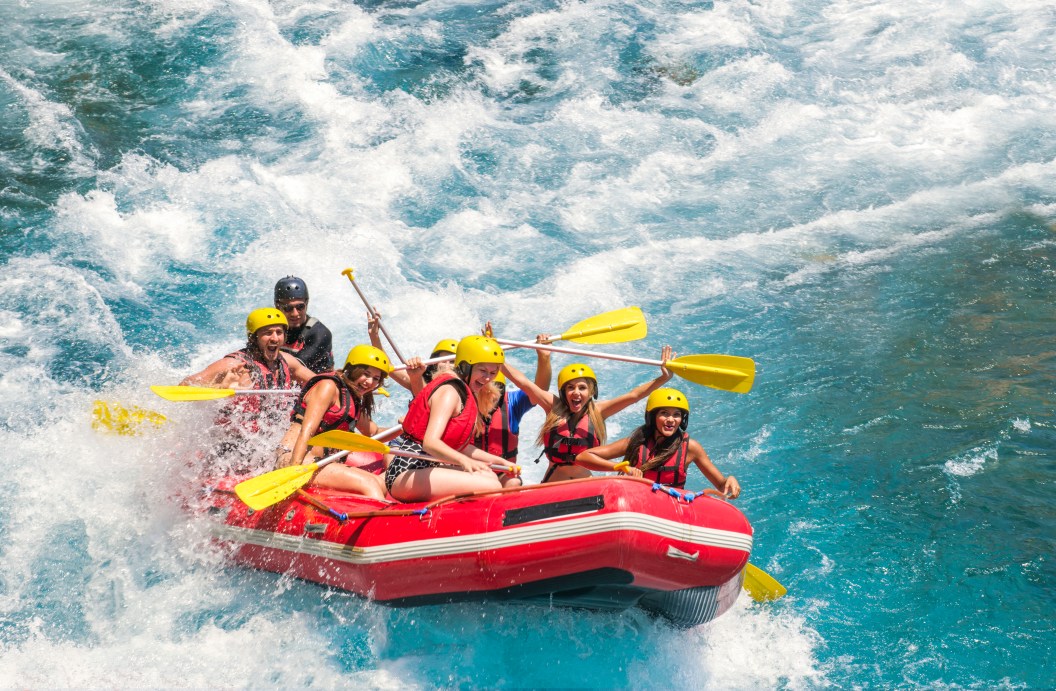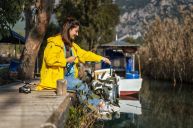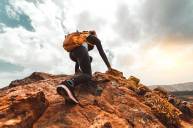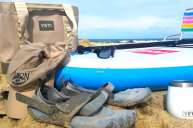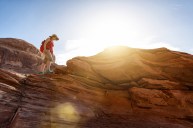A day spent drifting downstream on a rafting trip is one of the best ways I know of to enjoy nature and the powerful beauty of a river, whether you opt to ride in a paddleboat, paddle in hand, or choose to kick back in an oar boat, letting your guides do the hard work.
Private boaters and professionals alike have learned from experience that certain clothing and gear will turn a good day into a great day—or what should have been a good day into a rough one, with the wrong garments leaving you sunburned, soggy, and/or shivering cold.
As a professional whitewater river guide for over 30 years, I have recommendations of clothes, river shoes, and accessories that are my go-to for a great day on the river.
What Should You Wear Whitewater Rafting?
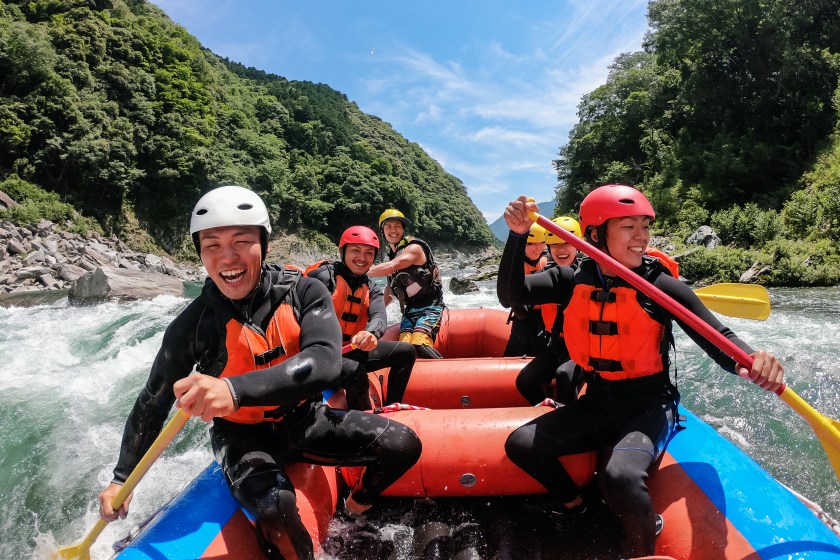
Getty Images, tdub303
Now, let's talk shop. When going on a whitewater rafting trip, you'll inevitably get wet. That's the fun of it, right? Depending on where you're rafting, though, you may be surprised that the water is as cold as the snow it recently melted from. While shocking, that first exhilarating dousing of cold water is a sign that you are on track for an incredible outdoor adventure. But wearing the right gear whitewater rafting can keep you warm—and safe.
If you're going with an outfitter, they'll supply you with a few key pieces of safety gear:
- A life jacket or personal flotation device (PFD), which needs to be worn at all times on the raft
- Neoprene wetsuits and booties or splash jackets, if applicable
- A paddle if you are part of a paddling crew
- Often, a helmet.
The rest of your gear is up to you.
Having spent thousands of hours on the water as a commercial whitewater guide, I have created a checklist for myself. Below is my go-to gear—and it truly does make a difference in comfort and safety.
1. Water-Resistant Sunscreen
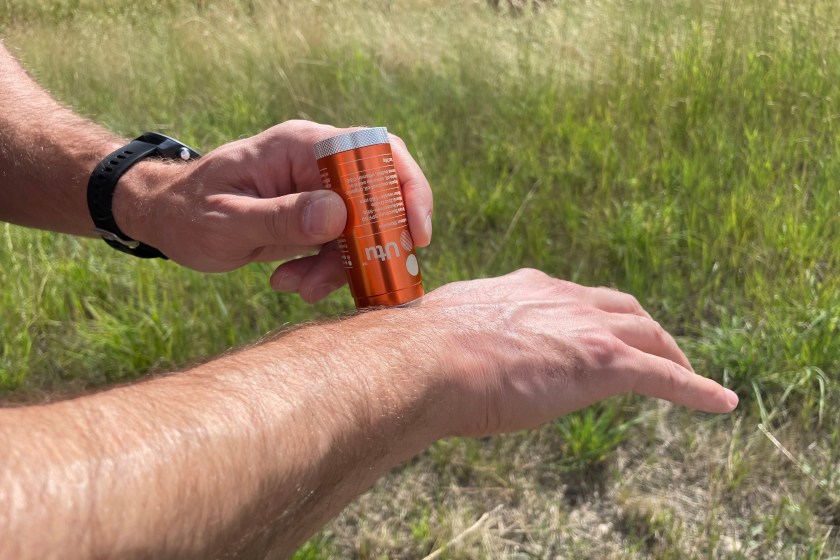
Paige Triola for Wide Open Spaces
For any outdoor adventure, using a sunscreen labeled "broad spectrum" with an SPF rating of at least 30 on exposed skin is essential and absolutely necessary to avoid sunburn and reduce risk of skin cancer. On the river, the sun's ultraviolet rays are intensified making application and reapplication every couple of hours even more important. Pro tip: Avoid putting sunscreen on your forehead when rafting, or waves will wash it down into your eyes....and it stings! (That's also why the next item in this list is essential.)
Personal choice comes into play when choosing your skin's protection, with options for fragrance or fragrance-free and physical sun blockers like zinc and titanium versus chemical-based ones. Lotions are more common and easier to fly with, while spray-on sunscreen allows you to get to those hard-to-reach spots on your back. And don't forget chapstick with SPF to protect the delicate skin of your lips from both sun damage and windburn.
My sunscreen picks:
2. Hat or Visor
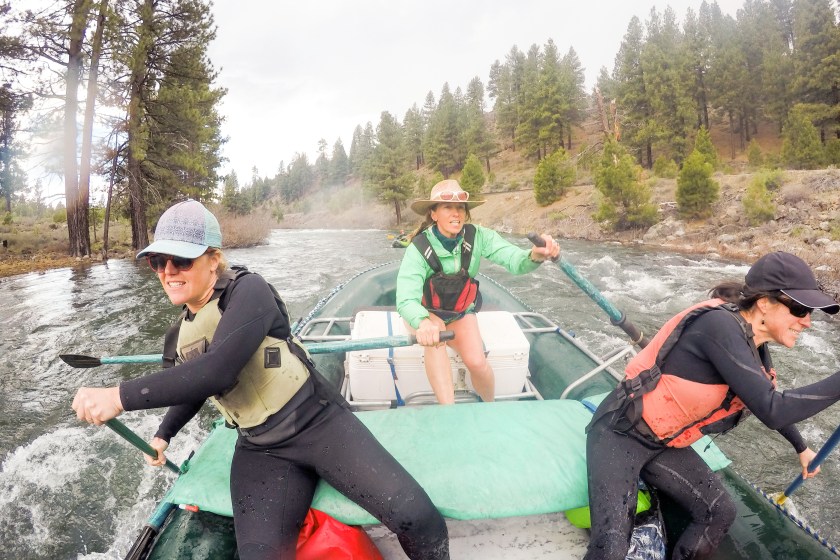
Getty Images, vernonwiley
There is nothing like a sunny day on the river; however, when the sun beats down, its reflection off the sparkling water can be pretty intense on the skin and eyes. Hats with brims cut down on the refracting light and to keep your forehead—remember, no sunscreen there—and face further protected from UV rays.
Quick-dry hats, such as Outdoors Tribe's, offer excellent protection and have a chin strap when the wind picks up. Visors provide the same face protection and allow for greater airflow to the top of the head.
My headwear picks:
3. Water Shoes
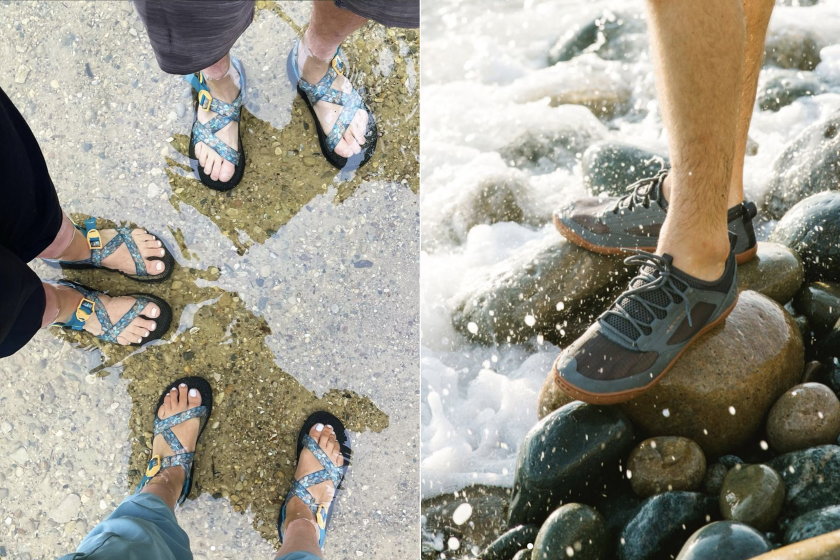
Chaco, Astral
You might think flip-flops or tennis shoes are the perfect rafting footwear, but hands-down—or, in this case, feet-down—the best footwear is a pair of outdoor sandals or river sandals from the likes of Chacos and Tevas.
Designed by river and fishing guides in the 1980s out of a necessity for functionality and durability, Tevas and Chacos stay on your feet with toe and heel straps and provide excellent traction on slippery rock surfaces at the river's edge. But the brands' design differences in strap design, footbed shape, and arch support will determine which sandal you gravitate toward.
Some people prefer a closed-toe option from the likes of Keen or Astrals for more protection against rocks while swimming and better sun protection. The caveat with the closed-toe is that getting errant gravel out of your sandal is more complicated.
My footwear picks:
4. Long-Sleeve Sun Shirt
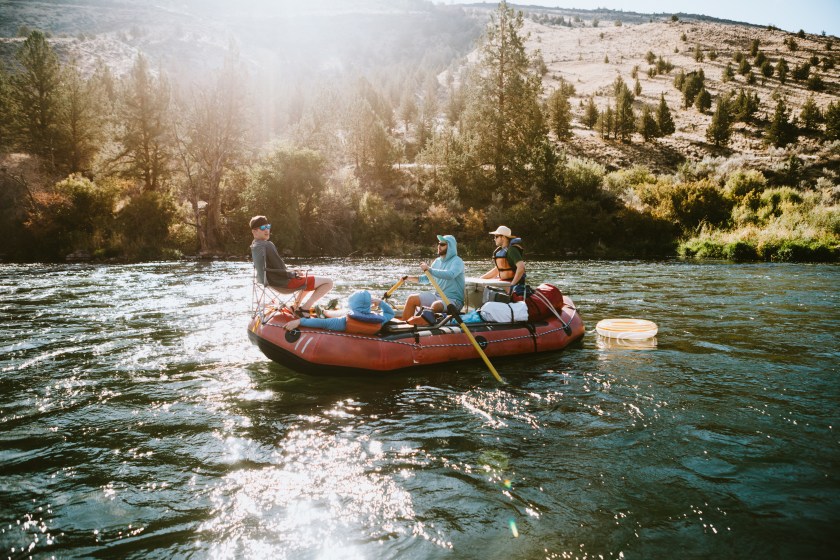
Getty Images, RyanJLane
You certainly can just wear a bathing suit under your PFD. But layering a long-sleeved sun shirt or rashguard underneath instead can enhance protection against both sun and wind as well as keep the life jacket from causing unpleasant chafing under your arms.
As long as the top's material is a synthetic, quick-drying material, your choice is purely a style one, with options ranging from a more tailored, button-down shirt like Columbia's PFG Bahama, to the more casual hoodie pullover, such as the Guide Hoodie from Simms.
My sun shirt picks:
5. Quick-Drying Clothing
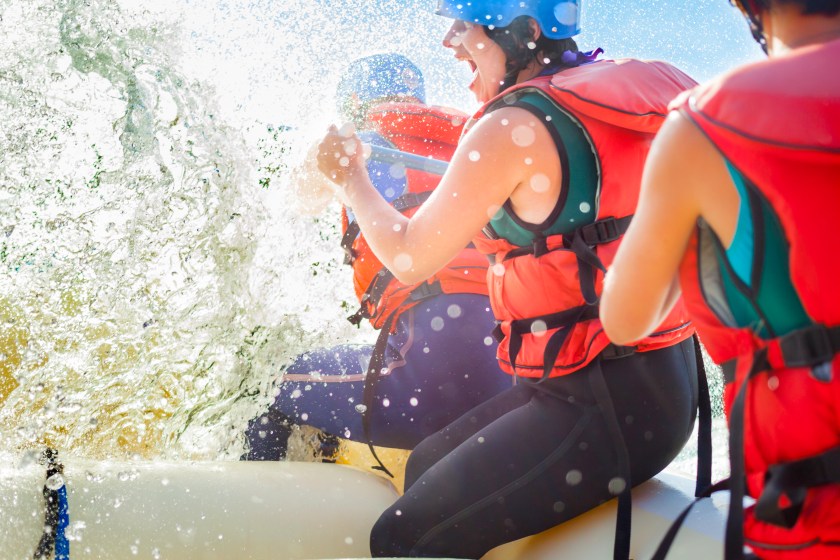
Getty Images, ranplett
Choosing cotton clothing is the biggest mistake when planning what to wear on the water. While it starts out soft and light, a T-shirt made of cotton absorbs water. Synthetic fabrics—Capilene, polyester, spandex, and rayon, to name a few—are durable, stretchy to allow freedom of movement and, most important on the river, are quick-drying.
For women, a swimsuit is a fine base option particularly if you plan to take a dip, but a sports bra works wonders as a supportive top, and a skort (skirt with shorts underneath) is comfortable, fashionable, and seamless in those areas that can get chafed after a long day of sitting on a raft.
Quick-drying board shorts for men are designed for comfort and durability. Men's swim trunks are also an option, but keep in mind, they are usually shorter with the potential to create chafing or, worse yet, lead to unintended exposure where you least want it.
My quick-drying clothing picks:
6. Sunglasses with Safety Straps
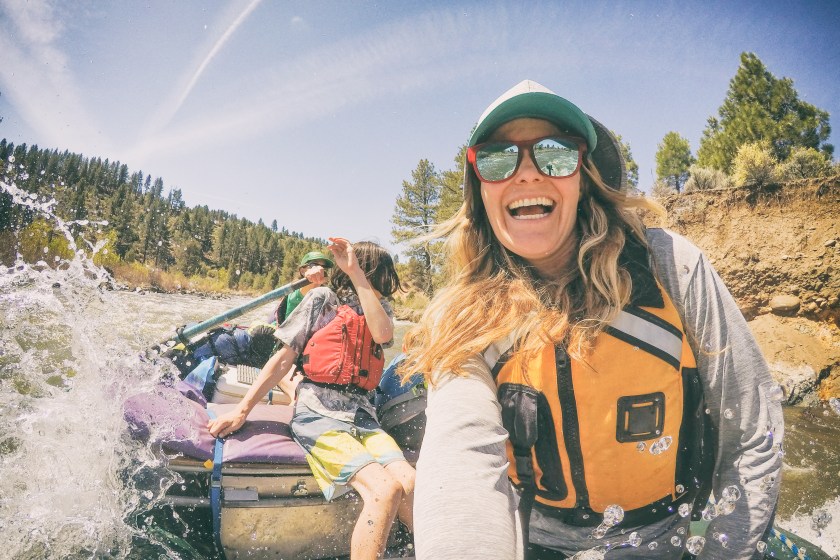
Getty Images, vernonwiley
Polarized sunglasses are the best on-river option for your whitewater adventure. The polarization reduces glare on the water and makes it easier to spot fish!
Straps, like Croakies, attach easily to your glasses, keeping them handily around your neck—and offer a safety net should your glasses fly off your face when you lean over the side to look in the water, or when you jump in to cool off (as well as any number of other ways I've seen happen).
My eyewear picks:
Your Questions, Answered
Sometimes companies will provide their clients with water bottles as souvenirs of their rafting trip. But hydration is important on the water and off, so don't assume these will be supplied. Here are two of my favorite water bottles. Metal Hydro Flasks are durable and will keep your liquid nice and cool. Nalgene's glow-in-the-dark bottle is fun in the dark!—and the durable plastic is BPA-free.
An easily accessible small personal dry bag keeps safe your cell phone or camera and your wallet, filled with money to tip your guide.
If you sign up for a multi-day river trip, you want to think about a change of clothes and base layers once off the river. Think: Comfortable and breezy while the sun's still out, layers for the night if it's shoulder season. Additionally, a lightweight rain jacket packs down easily and adds another layer if the air temperature drops. Evenings can get chilly, even in the summer months, especially if you are at higher elevations
Rather than sneakers, which will absorb moisture and stay wet into the evening, river sandals that dry fast are really the way to go. If you choose a pair that don't have a strap between your toes, you can warm up your feet with a pair of wool socks layered under your shoes and keep your packing to a minimum.
READ MORE: 9 National Parks Worthy of Every Kayakers Bucket List
